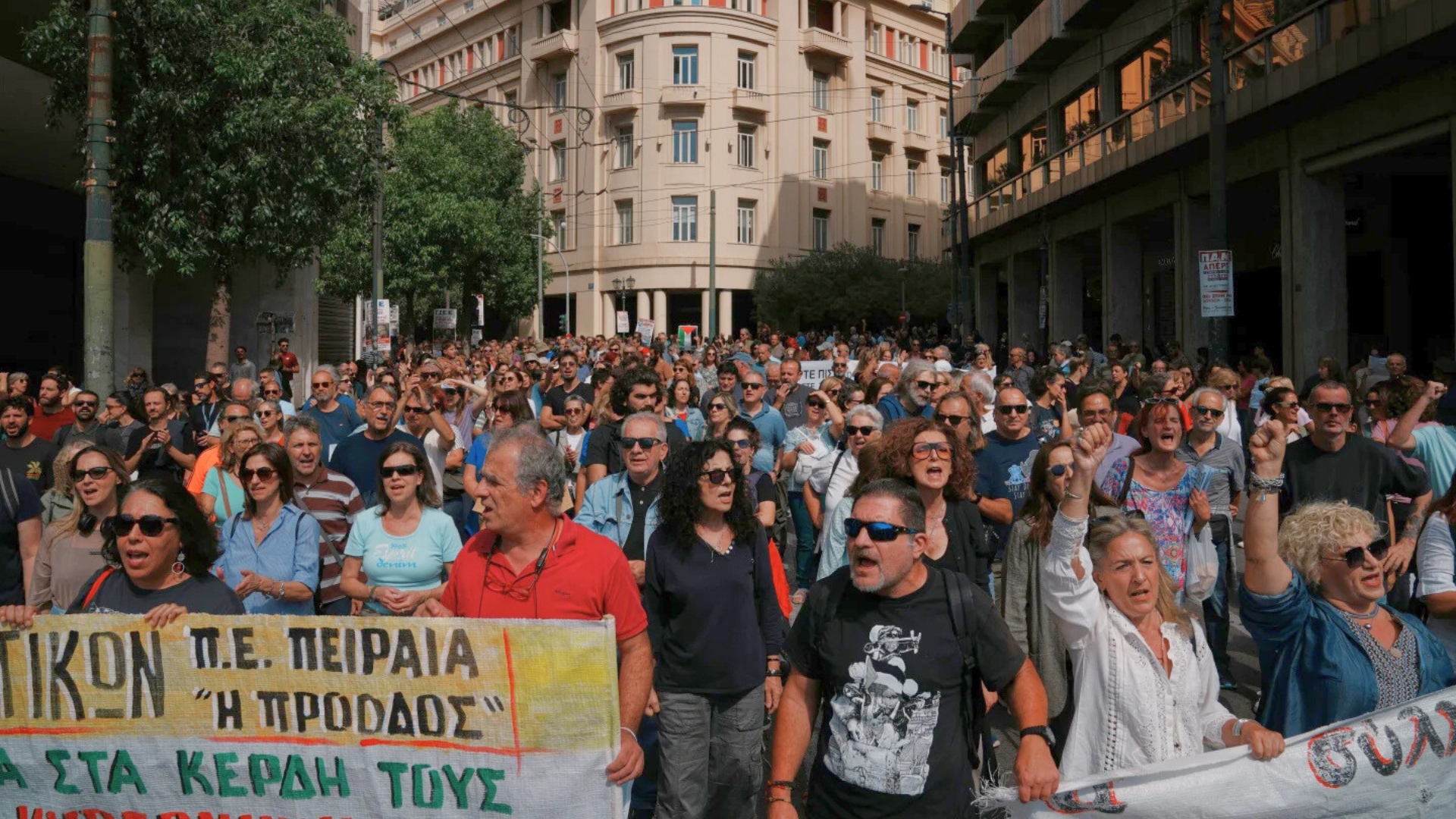A general strike has brought Greece to a standstill as unions escalate opposition to labour laws introducing a 13-hour work day in a country already among Europe’s hardest working.
The 24-hour walkout on Wednesday saw thousands of public and private sector workers take to the streets, halting transport in Athens and Thessaloniki, grounding ferries, and leaving hospitals and schools without staff.
Unions argue the reform strips workers of rights and work-life balance.
“Greeks are already forced to survive on some of the lowest wages in Europe and now they’re asking us to effectively work most of the day,” trade unionist Makis Kontogiorgos told The Guardian.
“People can’t be pushed like this; at some point there’ll be an explosion.”
The government of Prime Minister Kyriakos Mitsotakis insists the measure, due to pass this month, would apply only in “exceptional” cases and offer flexibility for young people working multiple jobs. But unions have likened it to “modern slavery,” warning longer hours will fuel burnout and accidents.
At €880 a month, Greece’s minimum wage remains among the EU’s lowest, while living costs continue to rise. Critics say extending hours will only worsen conditions, with labour experts noting Greeks already average 39.8 hours a week, compared with 35.8 across the EU.
“While the rest of Europe talks about a shorter working week, in Greece, in the 21st century, it’s all about longer hours and wages that don’t reflect the cost of living,” said Katerina Andritsopoulou, 55, who joined protests outside parliament.
The strike underscores growing resistance to Mitsotakis’ pro-business agenda, which has already triggered backlash over a six-day working week introduced last year.
Source: Guardian.
